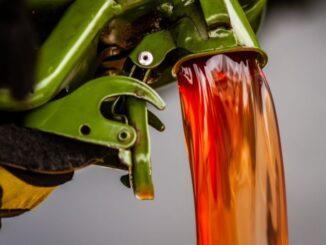
The Cold Chain Federation is calling on the government to make good on its promise to provide financial support to cold chain transport operators hit by the removal of the red diesel rebate for transport refrigeration units (TRUs), which came into effect on 1 April.
The CCF, which represents businesses which store and distribute chilled and frozen food, pharmaceuticals and other products, is accusing the government of reneging on its promise to support the sector’s transition away from diesel.
The Federation is warning that without this promised help the industry will struggle to meet its zero emission targets.
It calculates that changes to government red diesel regulations mean hauliers transporting chilled and frozen products will have to pay more than double to power tens of thousands of fridges used to supply chilled and frozen food products.
It estimates that ending the red diesel rebate has landed the sector with around £100m in additional costs across the supply chain.
Added to this are the additional costs cold chain operators face in transitioning to net zero vehicles, which require much greater energy use, because of the need to refrigerate the vehicles’ cargoes.
In its recent report, Shaping the Cold Chain of the Future, CCF called for targeted government financial support to assist businesses to invest in developing low carbon technology and accompanying infrastructure, which it said would significantly increase the rate of adoption.
The report added: “This direct support has been repeatedly promised by government throughout the consultation into the removal of red diesel entitlement, but so far the cold chain has received no support.
“This risks damaging the relationship between government and industry and stalling progress towards decarbonisation of TRUs.”
Read more
- Red diesel hike is missing the big picture on fuel duty
- ‘You’re acting illegally if you ignore red diesel rule change,’ waste firm warns
- Hultsteins offers solutions to TRU cost hikes after red diesel ban
The Federation is calling for the government to take a range of actions to help the industry. These include one off grants for specific zero emission technologies, similar to those adopted in other European countries; scrappage grants for older equipment; tax incentives to ensure uptake of emission free technology; and financial support to install grid connections and electric chargers, which it says are “currently prohibitive” to large scale installations of chargers in some areas.
Shane Brennan CCF chief executive told MT: “We are very much committed as an industry to decarbonise but we are facing barriers. On 1 April we had a major tax hike thanks to the red diesel measures.
“In 2020 when this was mooted the government said money would be available to support non-road mobile machinery which includes refrigerated units in haulage.
“This has not been delivered and we are working hard to hold government to account on this. We are optimistic.
“We feel we have been let down by the government. However we are optimistic, the industry is making strides in new technology which businesses are adopting, but we want the government to get behind us so we can speed up the pace of this change.”
Martin Kopicki, transport manager at perishable goods transport specialist PML, echoed Brennan’s calls for government support this week. He told MT he has been struggling to find electric vehicles that can replace the company’s diesel fleet without cutting a swathe through its margins.
He said: “We have been looking at using electric vans. However, although they have a range of 120km, when fully charged, when you add a fridge and it’s night time and it’s raining, that mileage goes down to 55km.
“It’s the same with trucks. We have 15 trucks at the moment of which 13 are trampers. Where do they recharge when they are doing those distances? There are very few options out there right now.
“Our air freight operation is another challenge. There is no way I can use all-electric vehicles for that at the moment. It is a 24/7 operation with our drivers working four hours on, four hours off, over a 12 hour shift. However the time it takes to charge an electric vehicle would mean that we would lose one shift on a truck per night. That adds up.”
He added: “There is nothing that works for this industry at the moment. The problem is the charging network is not in place, nor the technology. We need faster charging and a bigger network and we need government support to get the right technology in place. We want to decarbonise but right now the options to do so are just not feasible.”













